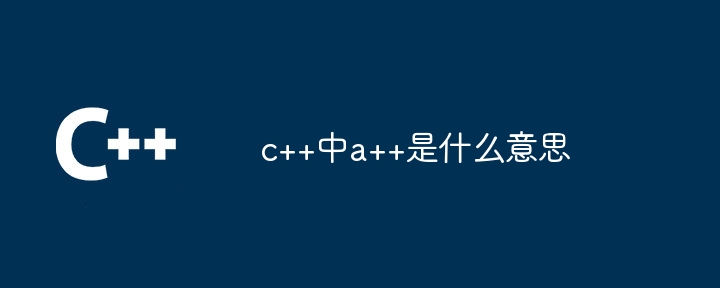Home >Backend Development >C++ >What does a++ mean in c++
What does a++ mean in c++
- 下次还敢Original
- 2024-05-06 17:42:161055browse
The "a" in C is the postfix increment operator, which increases the value of the lvalue variable or object by 1. This operation first uses the current value and then increments it by 1. It has lower precedence than the assignment operator and associates from right to left. Therefore, it differs in the order of execution from the prefix increment operator " a", which increments by 1 before using the new value.

The meaning of a in C
a is the abbreviation of the operator in C, which is called suffix increment operator.
Meaning
a is a unary operator, which means it operates on one operand. Its meaning is to increase the value of the operand by 1. The operand must be an lvalue, which means it can be modified.
Usage method
a The operator must be placed after the variable or object. For example:
<code class="cpp">int a = 5; a++; // 将 a 的值增加 1</code>
Priority and Associativity
a has lower precedence than the assignment operator (=) and is associative from right to left. This means that the expression a = 10 will first increment the value of a and then assign the result to 10.
The difference between a and a
a is a postfix increment operator, while a is a prefix increment operator. Their main difference is the order of execution:
- Suffix increment (a): First uses the current value of the operand, then increments its value by 1.
- Prefix increment (a): First increase the value of the operand by 1, and then use its new value.
Therefore, in some cases, the results of these two operators may be different. For example:
<code class="cpp">int a = 5; cout << a++ << endl; // 输出 5,然后将 a 的值增加 1 cout << ++a << endl; // 输出 7,因为 a 的值已增加 1</code>
The above is the detailed content of What does a++ mean in c++. For more information, please follow other related articles on the PHP Chinese website!

